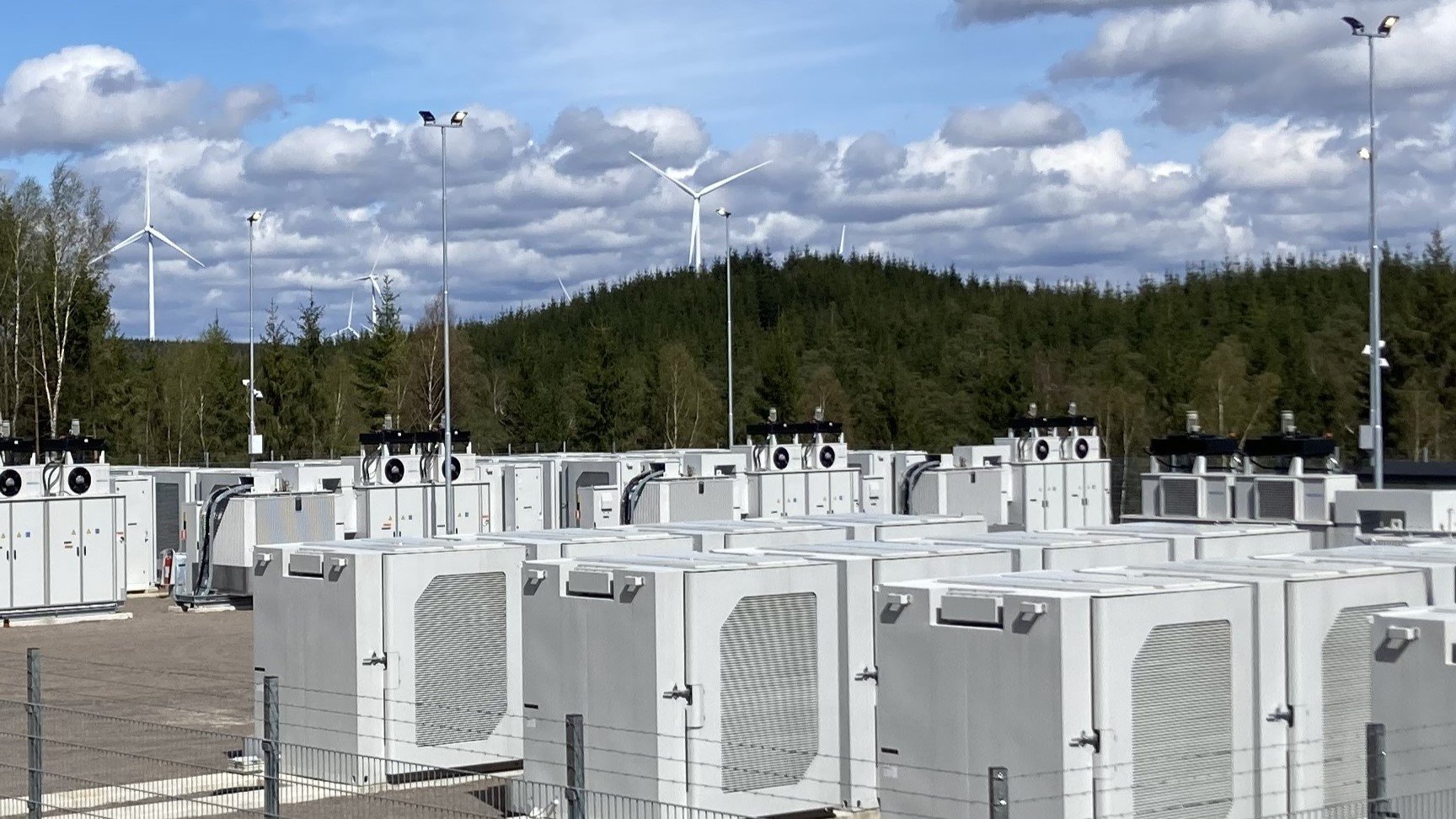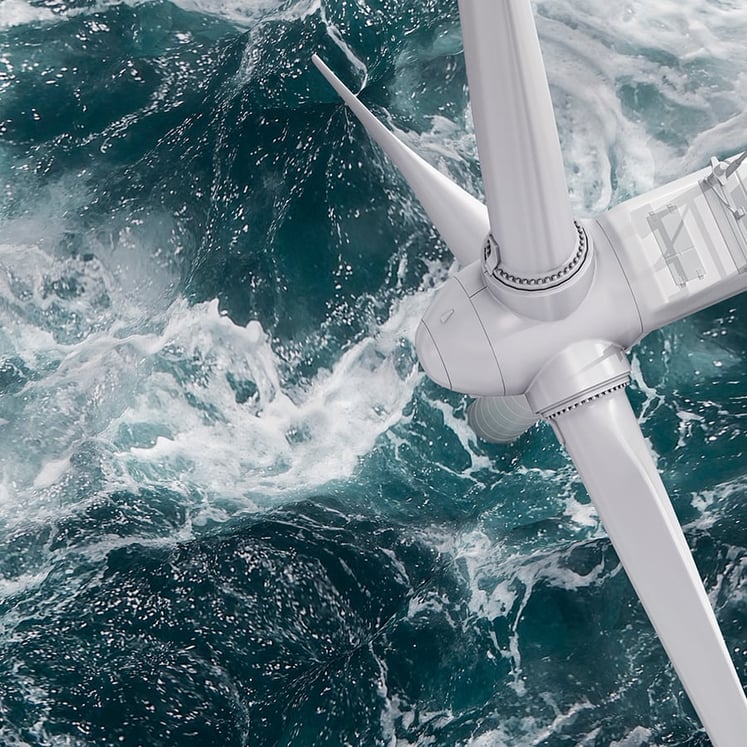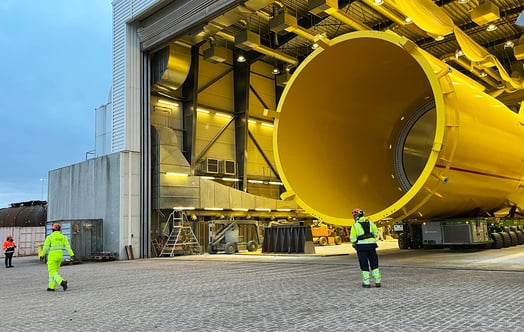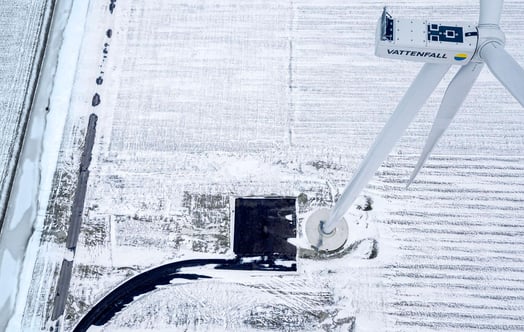Increasingly weather-dependent electricity production makes grid operation more complex. A plant in Hjuleberg, Sweden, is using a solution based on new smart technology, combining wind power and batteries to bring optimum stability to the grid.

Wind and solar power are the fastest-growing energy sources in the world today, thanks to their low climate impact and high cost-efficiency. But as electricity production from weather-dependent energy increases, it also makes it harder for the supply system to maintain balance and stability.
Now Vattenfall has developed smart technology which solves many of these problems.
In so-called hybrid power farms, different types of energy are combined and controlled in a way that brings out the best from each type. This way, a hybrid power farm based on wind power and batteries provides capacity for sustained production, split-second adjustment and energy delivery even in still weather. This makes it a very valuable addition when it comes to important system services. There is strong evidence to suggest that the hybrid farm technology could become the standard for new wind farms and also for large solar farms in the future.
Great opportunities to support the grid
In Hjuleberg in southern Sweden, Vattenfall and the pension company Skandia have built Sweden's first commercial hybrid energy farm. The farm, which is one of the most advanced of its kind in Europe, combines twelve wind turbines (combined output 36 MW) with a large battery (30 MW capacity), all controlled using advanced algorithms.
An electrical system needs to be in balance and the mains frequency must be stable – in Europe this means 50 Hz. This is normally achieved by throttling or slowing down the power plants in the system as electricity use varies over the day.
A normal wind farm is already very flexible and can quickly adjust its output if needed – faster than many other types of energy production. If we also combine wind power with extensive battery storage and smart control, the possibilities and capabilities grow enormously, because the farm can then not only step its production down, but also boost it when needed. And this is where Hjuleberg comes into its own.
“We have built hybrid power farms in other places too, in both the Netherlands and the UK, but Hjuleberg differs in that the two resources, wind and batteries, work as a single unit. This allows us to use the renewable capacity in the most efficient way. For example, if we need to reduce wind power production for a time, we can charge the battery instead and use the energy later. We can also maximise the utilisation of the grid connection,” says Johan Kronman, Project Manager at Vattenfall Business Area Wind.
The hybrid power farm in Hjuleberg went into operation in the summer of 2024 and can deliver a wide range of different support services to Sweden's electricity system, ranging from split-second tweaks up and down to compensating for major changes, such as outages or loss of production elsewhere in the system. The fact is that the hybrid power power farm has a unique ability to deliver all the support services that Sweden's TSO, Svenska Kraftnät, needs.
Robin Landau from Vattenfall's energy trading department is responsible for marketing the production from the Hjuleberg hybrid farm:
“With our solution, bids are placed on all available services and markets, after which our algorithms make an estimate of the best combination based on the needs of the market and the status of the hybrid power farm. Our sale decision is then translated into control signals to the farm, which then executes the request, taking account of technical and network constraints.”
Status updated in real time
The uniqueness of the Hjuleberg solution lies in the smart control system developed by Vattenfall, which calculates in real time what combination of wind energy generation and battery power that gives the best results for the grid.
“In other hybrid farms that we have developed, the battery is controlled separately and so is the wind/solar production, but in this solution, energy storage and wind turbines work as an integrated unit. Every moment, a new calculation is made to determine the optimum split between production and storage. So when the wind varies, we can back up with the battery, and vice versa,” says Ozan Sahin, Development Engineer at Vattenfall R&D who is part of the team behind the technical solution. The team is led by Alin Raducu from Digital Engineering within BA Wind.
Several hybrid farms in the works
In addition to Hjuleberg, Vattenfall has started construction of two more hybrid farms in Sweden with the same advanced technology: Höge Väg and Bruzaholm. These are also located in the southern part of the country, and the placement makes sense: it is in the south that prices vary the most. On a normal day in November, the electricity price can go from 9 euro early in the morning to 400 euro in the afternoon. And the price variations are an indicator of the need for flexible balancing and support services.
In other countries, the principles governing system services differ in some respects, but the time is right for the technology. In Germany, for example, Vattenfall plans to invest heavily in hybrid power farms that combine batteries with solar power production.
“Hybrid power farms with battery storage are likely to have a very big future. There will be a need to integrate a growing proportion of weather-dependent generation into the system, and the prices of batteries have fallen over time. Batteries don’t solve all of our problems, but the fast response and great flexibility are a fantastic strength,” says Johan Kronman.
Hybrid power plants, Vattenfall
The hybrid farms at Hjuleberg and nearby Höge Väg in Halland are both jointly owned by Vattenfall (50%) and the pension company Skandia (50%)
The hybrid farm at Bruzaholm will be completed in autumn 2025. Read more about Bruzaholm: Sustainable procurement slashes carbon footprint from wind farm construction
Read more about the Ray hybrid farm in the UK: Ray Wind Farm - Vattenfall
Read more about the Pen y Cymoedd hybrid farm in Wales: Our power plants: Pen y Cymoedd - Vattenfall
Register for our monthly newsletter THE EDIT
THE EDIT is Vattenfall's new monthly newsletter. Each issue highlights a new burning issue from the world of sustainable energy and fossil freedom.




